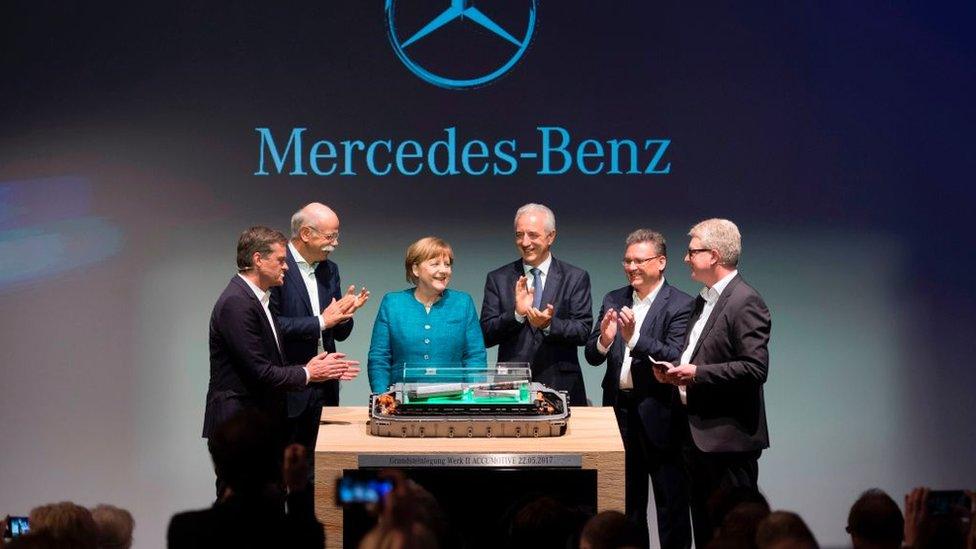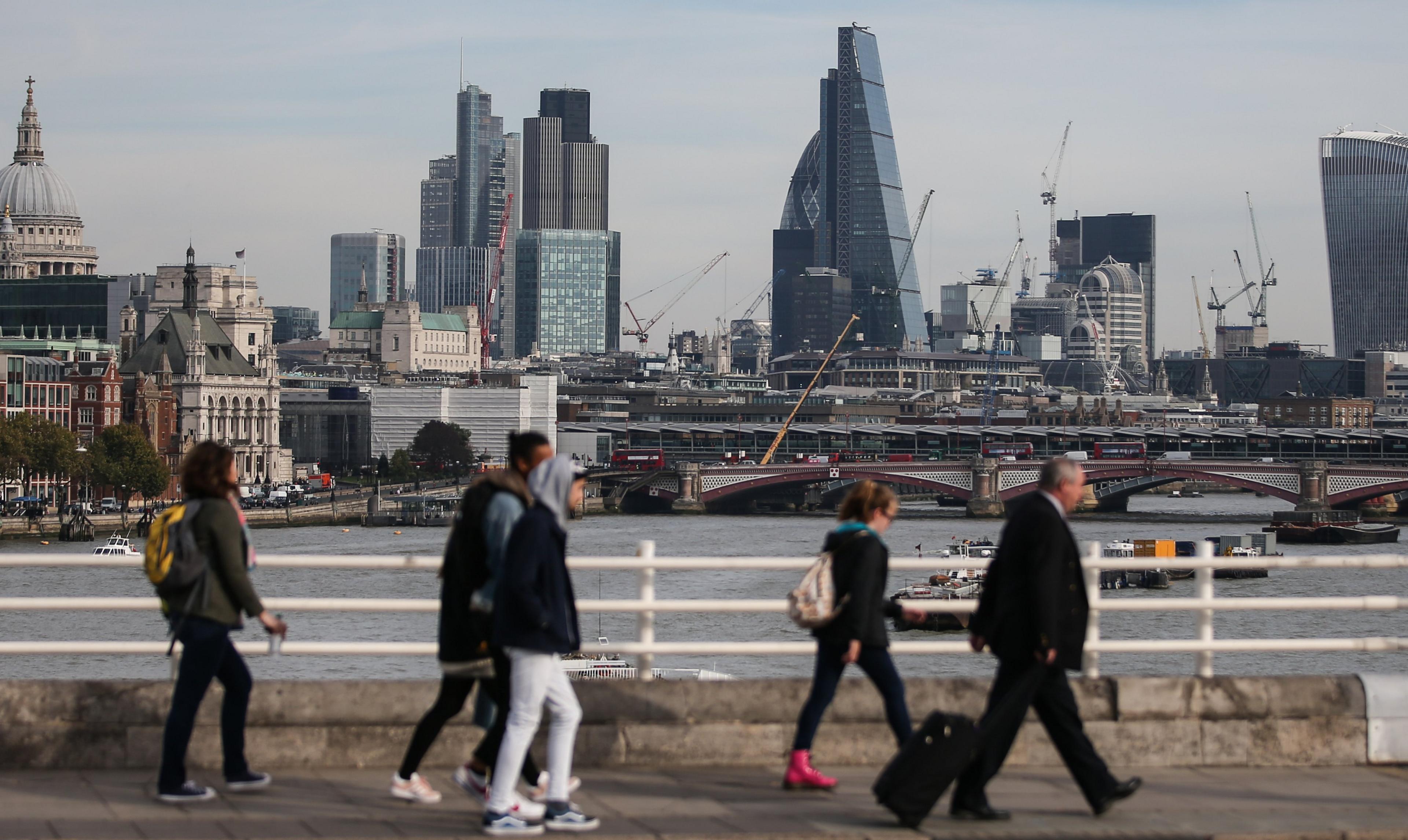German firms grapple with UK poll result
- Published

Time for a toast? Some German firms think so
It's a strange day when German business leaders - hardly known for their Bolshevism - are tentatively raising their glasses to toast a favourable election result for a left-wing, pro-borrowing, high-spending candidate.
And yet that is what many boardrooms from Berlin to Baden Wurttemberg will be doing this morning, however discreetly, after Jeremy Corbyn outperformed expectations and ate into the Conservative Party's majority.
The reason for this embrace, simply, is the single market.
Initially, there had been little-to-no interest in the UK election in German business circles. Most, like the polls, assumed a comprehensive win for Theresa May, and the size of her majority was seen as being of negligible consequence to the direction of Brexit negotiations.
As one chief executive of a German-based multinational put it: "A weak or strong UK government still really has no negotiation power in the Brexit. The EU will still set the agenda and terms."
Indeed, many firms, especially those in the Mittelstand - Germany's small and medium-sized businesses that often have close links to the UK - had been working on the assumption of a so-called "hard Brexit" for months. Quite a few mentioned that they were courting other growing EU export markets - Poland, for example.
But as the polls began to narrow, there was a last minute scurry to understand what a Jeremy Corbyn-led approach to Brexit would be - with some privately concluding that the chances of keeping Britain in the single market might be higher under Mr Corbyn, even as they disagreed with many parts of his economic platform.
What seemed like a last ditch effort by the head of the BDA, the German Employers Association, to find a solution that would enable the UK government to negotiate some form of single market access after Brexit, suddenly didn't seem as far-fetched.
This morning, Ingo Kramer, the BDA's president, wasted no time in declaring that the UK election results showed "nationalism and anti-EU rhetoric" could not lead to majorities, before adding, somewhat triumphantly:
"We can only hope that more realism and pragmatism will now be injected into the Brexit negotiations."
Jorg Kramer, Commerzbank's chief economist, reacted with similar cheer, saying Thursday's result was a "vote against a hard Brexit".
The head of the BDI, Dieter Kempf, said a "hard Brexit" had been voted out, and that it was time for the UK government to " de-escalate its rhetoric".
The Dax share index in Frankfurt rose by almost 1%.
Yet the reaction has not been unanimously favourable.
Some, including the quietly influential VDMA - which represents German engineering firms, said they feared a hung parliament or minority government would derail negotiations for months, or kick them into the long grass, leading to far greater uncertainty.
"The unclear political situation after the elections in the UK will make the Brexit negotiations even more difficult," said Thilo Brodtmann, VDMA's chief executive.
Mr Brodtmann added that the result was "bad news" for German mechanical engineering firms, who export 7.3bn euros worth to the UK every year, and that there was now an increased risk of no agreement being reached by the 2019 deadline.

German business leaders hope it will prove easier for their government to negotiate a softer Brexit
Martin Wansleben, who leads the Association of German Chambers of Industry and Commerce, or DIHK, struck a similarly downbeat tone.
The lack of a clear majority had led to an increase of uncertainty in the German economy, he said, and the "road map for Brexit negotiations is now obsolete".
A handful of small business owners, whose trade links with the UK are less vital, suggested a swift and smooth Brexit resolution remained paramount, as the act itself had long been priced in, whether hard or soft.
But regardless of the reaction, one thing seems certain. German interest in the intricacies of the UK parliamentary system has never been this high.
- Published9 June 2017
- Published9 June 2017

- Published11 June 2017
